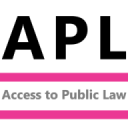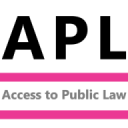Education Other Than at A School/College (EOTAS)
Since the COVID-19 pandemic there has been a noticeable increase in the number of young people needing support with their mental health, anxiety, panic attacks, loss of motivation and hope for the future. This often escalates to difficulties with them being able to attend school. There are consequences for young people and their parents if they do not attend school and parents do need to be very proactive to work with schools in the early stages to make sure that support is sought.
Mental Health advice following the pandemic was for an increase in provision to consider wellbeing and to make this a priority in schools, but in reality, Government guidance on children attending school has become more hardline. This has resulted in schools dealing with non-attendance down a formal attendance/prosecution of parents route, rather than support for addressing the underlying cause of the issue. That, in many ways, is the easy route for them yet leaves families with the unenviable task of navigating a complex system to receive any educational support and an even harder job getting support for their children’s mental health needs, whilst also dealing with the threat of criminal proceedings. Support available for families in these circumstances ranges from the inconsistent to the nonexistent and accessing any of it is fraught with difficulty.
Before prosecuting parents, local authorities should be considering all other options to try and support young people to return to education. It may be possible to arrange transition back into school plans and enhanced support to help with that, but in many cases, young people are simply unable to reengage with school based learning.
If you are being threatened with school attendance proceedings (which are criminal proceedings dealt with in a Magistrates court) there are a number of options and taking advice as to what will be best to try and avoid that process is crucial.
Engaging with local authorities to meet your young person’s individualised needs is important. They may be required to go through a statutory assessment route to identify their needs and provision to meet those needs and to arrange for an Education Health and Care Plan (EHCP). If an EHCP is to be put in place, then that should mean that nonattendance proceedings should be withdrawn rather than prosecuted. If following that process it would be inappropriate for a young person to attend school then consideration will need to be given to an EOTAS package of support to be written into the EHCP.
Writing an EHCP for an EOTAS package is not straightforward as it requires every detail of the quantified support to be properly specified otherwise the package may be very difficult to enforce.
There is a lot of misinformation about EOTAS from schools and local authorities such as young people only being entitled to limited tuition hours or support needing to be delivered only through school outreach services. There seems to be little focus on a young person’s individualised needs and packages that focus on all the requirements of a rounded suitable education such as socialisation, physical activity, therapy support and community learning.
It is often left to parents to devise a suitable plan for educational support and parents need to think creatively about what will meet all needs. For example, some young people are unable to leave their home and will require support delivered online but for others outdoor learning such as Forest Schools or equine therapy could be required. Delivery of therapy (SLT/ and OT and physio) often psychology support is required, but local authorities often will not engage in supporting delivery of this provision.
Each package is highly individual but we can advise on how to adapt to your young person and how to create a plan that is properly enforceable.
We can assist with early advice on strategies to work with school and authorities to build provision plans and advice on securing enhanced provision if EOTAS is envisaged to be a longer term solution.
Looking after children and young people is incredibly rewarding, moments of pride are precious and every smile and milestone is held close and cherished, but at times life can also be stressful and exhausting!
Challenges are ever present and those milestones and smiles are hard fought for when your child or the young person you are caring for has special needs, day to day life has the added responsibility and time commitment of seemingly never ending medical appointments and assessments.
When problems are encountered with accessing additional support from statutory services that adds to the burden and can be time consuming and emotionally draining. Navigating the complex and lengthy rules, regulations and legislation that you need to understand to ensure that you are able to uphold the rights of your child becomes almost impossible.
There is a lot of information and helpful resources out there that you can use to try to resolve any issues encountered on your own but finding and searching through all of that to identify what is useful and relevant in your particular circumstances adds another time burden.
At Access to Public Law, we are specialists in education law, our team is led by Imogen Jolley, a recognised expert solicitor with over 20 years of experience of assisting families to access the support that children and young people require to enable them to flourish and live as full and independent a life as is possible. Imogen’ s vast experience enables her to swiftly unpick complex issues and cut through to the core of a problem, she delivers straight forward, plain speaking advice and practical solutions and is valued by her clients for her unnerving support and incredible empathy during difficult times in their lives. You can read what Imogen’s clients say about her here .
We are in a unique position as we also have an expert solicitor in Community Care law, Imogen and Melanie Varey work alongside each other to identify and resolve issues that may arise as young people are transitioning into adult services or lack capacity to make their own decisions as an adult and may require applications to the Court of Protection. We can help you prepare for any foreseeable challenges.
How we can help
We are a small, niche practice so can offer access to support quickly and without the need to navigate call centres or automated services. If a problem arises, we are able to quickly arrange a call with you to understand your situation and quickly cut through to what the legal issue is and set out your options for resolution. Our aim is always to work with you to develop together the best tactical plan to resolve the issues or any dispute quickly, ensure access to the right kind of support and provision and avoid lengthy Tribunal processes. We will always be by your side supporting you and can take away the burden of understanding and navigating the law and communicating with statutory services. If you require support and assistance we suggest contacting us as soon as a problem arises or a decision you have been given seems unfair, wrong or not what you expected. We can also help prepare you in advance of decisions being made and are able to offer advice at various stages throughout the process.
If you’ve tried yourself to ensure adequate support and educational provision for your child with SEN but have reached a dead end, it may be that legal action is unavoidable, we can assist from the outset.
You can find out more about the work our Education Team do here;
- Appealing a School Place
- School Exclusion Appeals
- EHCP appeals
- Special Educational Needs
- SEN tribunals
- Disputes with private/independent schools
- Disability Discrimination
Talk to an Education Law professional
If you are in a dispute with a local authority, school, or place of education concerning your child then please contact our friendly Education team today and find out what help there could be available to you.


Follow us on Social Media